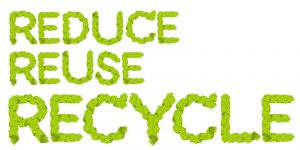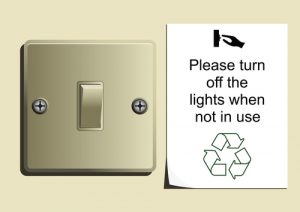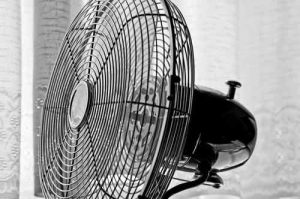How do you go green
Green has become a fashionable word these days. “Green Living”, “Green Technology”, “Green Products”, etc are all fashionable. Thanks to the good marketing “Going Green” is the “in thing”. But going green is not just fashionable but very much a need of the time. Dwindling resources, climate change, environmental hazards and their impact on human health makes it very important to “Go Green”. “Going Green” not only means planting more trees but also practicing an environmentally friendly and ecologically responsible lifestyle as well as making decisions to help protect the environment and sustain natural resources. But how do you go green? What all things do you need to do to go green? This question intrigues a lot of people. With this article we will try to put a list of a few things that you can do to go green.
Save energy to go green
We use multiple sources of energy in our day-to-day lives. We use electricity that is mostly produced by burning coal. We use petrol, diesel or CNG in our vehicles, which are sources of energy. We use LPG or PNG at our homes to cook food. Some people also burn coal, kerosene or biomass to cook food. Why do we need to save these sources of energy:
- We do not have endless supply of these resources and many of them will not last for long. We have used them enough for our comfort; we also need to save for our future generations.
- Burning of these fossil fuels have resulted in release of a lot of CO2 in the environment, which is leading to climate change. We can feel that the environment is hotter and rains are weird. If we want things to be in control, we will have to burn less.
How can you save energy:
- By using efficient appliances that use less electricity. This website has a lot of details on such appliances.
- By using appliances efficiently and maintain them properly. More details available on other sections of this website.
- Switch off appliances from the plug point when they are not in use.
- Try switching to renewable sources of energy like solar and wind.
- Try to use as less appliances that can provide you comfort. Excess of luxury appliances can increase your carbon footprint.
- Use efficient cars and vehicles that use less fuel and give better mileage. Bigger cars consume more fuel and thus choose the one that suffice your needs.
- Maintain your vehicles regularly so that they cause less pollution and give better mileage. Better tire pressure is important for good mileage. Switching off the vehicle during long waits also help a lot.
- Carpool whenever possible. Walk or cycle for shorter distances.
- Use small burners for cooking. Make sure that they are clean. Even the vessels should be clean to save energy. Using shallow vessels can also help save LPG/PNG.
- Pressure-cooking is the most efficient way of cooking, one just has to make sure optimum water is used. Using lids to cover vessels can help save heat loss.
- Do not heat frozen or cold food. Allow it to come to room temperature else you will end up using more gas.
- Always plan well and try to eat together so that gas is not used multiple times.
Save Water
Water is a very precious resource and very much essential for our survival. Human body contains 55-78% of water. We need water for drinking and various other activities. Out of all the water on earth only 1% is available for drinking thus it is a non-renewable resource. With decreasing water table in most part of the country and pollution of rivers, the amount of available fresh drinking water is also decreasing. Thus it is very important to save and preserve as much fresh water as possible.
How can you save water:
- Use optimal amount of water for bathing. It can also reduce your energy consumption if you use hot water for bathing.
- Use front load washing machines instead of top load washing machines.
- Avoid using bathtubs and use low flow shower heads in case you bath with shower. Bucket bath is the most efficient. Also take shorter baths.
- Do not waste water while doing other activities. Keep the taps closed when water is not being used.
- Use water efficient bathroom fittings.
- Look for options for rainwater harvesting, as rainwater is a very clean form of water.
Manage and Recycle Waste
Waste: organic, inorganic or electronic is one of the biggest challenge humans are facing. Waste matter not only makes the surroundings look dirty but it also creates environmental hazard, which results in unsafe living conditions for human beings. With the rise in population across the world we are producing much more waste than what we are able to manage. With improving lifestyles the amount of wastes (especially electronic) generated per household is also increasing. Why is waste recycling important:
- To make the surroundings look beautiful.
- To convert some of the organic waste to energy.
- Certain wastes like electronic wastes and plastics cause environmental hazards that can produce unsafe living conditions for humans.
- Recycling waste paper can helps save some trees from being cut thus making environment look more greener. Also these trees can remove some of the CO2 released in the environment that was released due to burning fossil fuel.
How can you manage and recycle waste:
- Segregate waste in your house or residential society. Remove organic waste (waste food) from other inorganic waste. Organic waste can be used to generate energy by various waste-to-energy methods.
- Waste like plastics and paper should be kept separate for recycling. Search for a certified recycler in your area to make sure that the waste goes to the right place. Do not throw plastics and paper anywhere others than dustbins.
- Do not sell old and used electronic products to “kabadis” as the unorganized electronic waste market use environmentally unsafe methods to process them. There are many certified e-waste recyclers in the country that process them using proper means. Search for them in your area and sell it to them. Always take care while disposing your laptops, cell phone, refrigerators, air conditioners, etc.
- Safe disposal of CFLs, Tubelights and batteries is very important as they contain hazardous material like mercury.
Buy non-toxic, organic and recycled products
It is very important to be a smart buyer. There are lot many products available in the market today that are not just harmful to the environment but also to our health. For safer living and better future, it is better to avoid using these harmful chemicals and create a better living condition.
Things that can help you go green:
- Eat Smart: try switching to organic food and avoid using food produced using chemicals and technology.
- Use organically produced products.
- Avoid toxic cleaning products and switch to simple ingredients like baking soda, lemon, vinegar and soap.
- Avoid buying clothes that need to be dry cleaned as this cuts down the use of toxic cleaning material.
- Avoid toxic paints and plastics for construction material and for products of day-to-day use.
- Try using recycled and non-toxic products for building construction and make your buildings “green building”. Using bamboo for building construction is the latest green thing.
- Use recycled paper, bottles, etc.
- Buy less and buy smart. Always look for opportunities to share.
Living sustainably is the need of the time and if we do it, our children and grand children will thank us for it. So why wait for tomorrow, start now and “Go Green”. Please do share more ideas that you have in the comment section below and help others also go green.
References:
http://www.usa.gov/topics/environment-agriculture/going-green-tips.shtml
http://ehs.columbia.edu/ReduceReuseRecycle.html
http://www.pcra.org/English/domestic/lastLong.htm
http://en.wikipedia.org/wiki/Water#For_drinking
About the Author:
Abhishek Jain is an Alumnus of IIT Bombay with almost 10 years of experience in corporate before starting Bijli Bachao in 2012. His passion for solving problems moved him towards Energy Sector and he is keen to learn about customer behavior towards Energy and find ways to influence the same towards Sustainability. More from this author.






